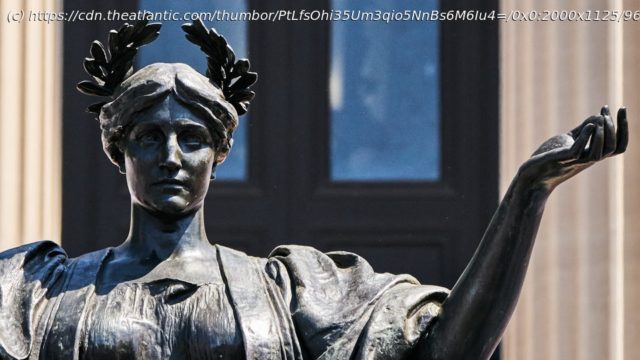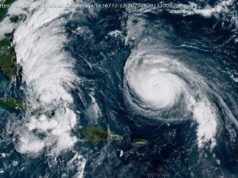The university protected its funding and sacrificed its freedom.
Exhausted and demoralized, Columbia University agreed last night to pay the Trump administration $221 million in exchange for peace. By early next week, it will deposit the first of three installments into the U.S. Treasury, as part of a settlement that ends the government’s investigations into the school’s failure to protect Jewish students from discrimination. By paying tribute to the administration—and making other concessions aimed at shifting its campus culture ideologically—Columbia hopes to ensure that research grants will begin to flow again, and that the threat of deep cuts will be lifted.
In the context of the administration’s assault on American higher education, Columbia will feel as if it has dodged the worst. A large swath of the university community, including trustees who yearned for reform of their broken institution, may even be quietly grateful: When past presidents attempted to take even minor steps to address the problem of campus anti-Semitism, they faced resistance from faculty and obstreperous administrators. Ongoing federal monitoring of Columbia’s civil-rights compliance, arguably the most significant component of the deal, will almost certainly compel the university to act more decisively in response to claims of anti-Jewish bias.
Columbia’s decision to settle is understandable, but it’s also evidence of how badly the Trump era has numbed the conscience of the American elite. To protect its funding, Columbia sacrificed its freedom.
The settlement is contingent on Columbia following through on a series of promises that it made in March, when the Trump administration revoked $400 million in grants. The university agreed to install a vice provost to review academic programs focused on the Middle East to ensure they are “balanced.” It also pledged to hire new faculty for the Institute for Israel and Jewish Studies.
As it happens, I agree: Many of Columbia’s programs espouse an unabashedly partisan view of the Israel-Palestine conflict, and more faculty at the Institute for Israel and Jewish Studies would be a welcome development.






